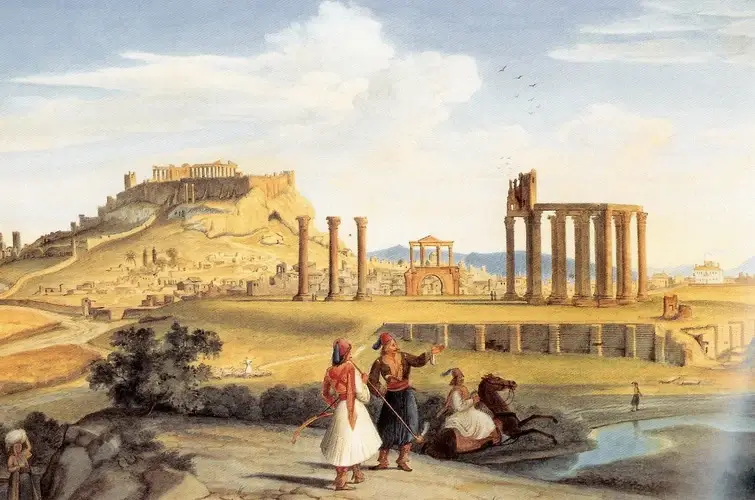Zeus has held a central role in Greek mythology for ages. Being the king of the gods and the deity associated with thunder and lightning, he’s commonly depicted as an omnipotent and eternal entity. Therefore, a question arises: Did Zeus Ever Die in Greek Mythology?
Although the concept of a god’s demise might appear paradoxical based on the majority of Greek myths, there are certain instances, like the Cretan myth of Zeus, that propose even the most powerful gods are not exempt from mortality.

Can Greek Gods Die?
For centuries, Zeus, the supreme deity of Greek mythology, has occupied a central role in the pantheon. In Greek mythology, Zeus and all other gods are generally regarded as immortal, but not invincible or impervious to harm.
Instances from Greek mythology display gods being exiled or incapacitated, implying they aren’t completely shielded from external influences. An example of this is Zeus’s father, Cronus, who was imprisoned in Tartarus along with other Titans by the Olympian gods.
Nevertheless, Zeus himself is often depicted as an omnipotent and undefeatable deity, capable of brandishing thunderbolts and lightning at his command.
Cretan Myth of Zeus and His Death
While the prevailing belief holds that Greek gods are immortal, certain myths suggest Zeus’s death in Crete, his birthplace. Since the 4th century, literary references to Zeus’s demise have emerged, consistently indicating Crete as the location of his death.
One of the earliest allusions to his demise appears in Callimachus’s Hymn to Zeus (310-c to 240 B.C.), featuring the verse: “Indeed, the Cretans even devised a tomb for you, O Lord, but you will not succumb, for you endure eternally.”
The Cretan Zeus undergoes an annual cycle of death and rebirth. Although the precise particulars of his demise frequently remain unmentioned in these tales, indications point to his demise resulting from being fatally wounded by a wild boar.
The notion of Zeus being capable of permanent death likely emerged from the myth of Cretan Zeus and found its way into films. The Cretan perception of Zeus stands in direct contrast to the conventional belief in Greek gods as eternal and undying entities.
Death of Zeus in Films
This myth’s influence extends beyond Crete, finding its way into literature and popular culture. For instance, the concept of Zeus’s potential demise has been depicted in various films and TV shows. While Zeus doesn’t consistently meet his end in these portrayals, his death is becoming a more prevalent motif in pop culture. In films like “Thor: Love and Thunder,” Zeus is killed by Thor, although he ultimately survives.
As the ruler of Olympus, Zeus held a reputation as a stern enforcer of justice. His punishments were not only severe but also eternal.
Notable instances include the eternal torment of Prometheus, who had his liver pecked by an eagle daily for giving fire to humans; Ixion, bound to an endlessly burning wheel for impregnating Zeus’s wife Hera; and Asclepius, the God of Medicine, struck down by Zeus’s thunderbolt due to his power to resurrect the dead and heal excessively. Similarly, Sisyphus was cursed by Zeus to roll a colossal boulder uphill perpetually.
Consequently, Zeus took on the image of a tyrant who misused his authority, prompting a need for a hero to defeat him and stop his misdeeds. Despite the Cretan myth’s existence, most alternated perspectives maintain that Zeus remains immortal. He is depicted as an omnipotent and indestructible deity, wielding thunderbolts and lightning at his will.
Summary
Zeus, the dominant figure in Greek mythology, embodies thunder and lightning’s power. The question arises: Can Zeus Die in Greek Mythology? Despite immortal god norms, the Cretan myth implies Zeus’s death. Zeus’s supremacy isn’t foolproof; gods in Greek mythology can be exiled or incapacitated. Cronus’s imprisonment illustrates this, revealing divine susceptibility. The Cretan myth suggests Zeus’s annual death and rebirth, perhaps from a boar’s fatal attack, portraying him as not being free from mortality.
Also Read: The Children of Hades: Did Hades Have Children in Greek Myth
